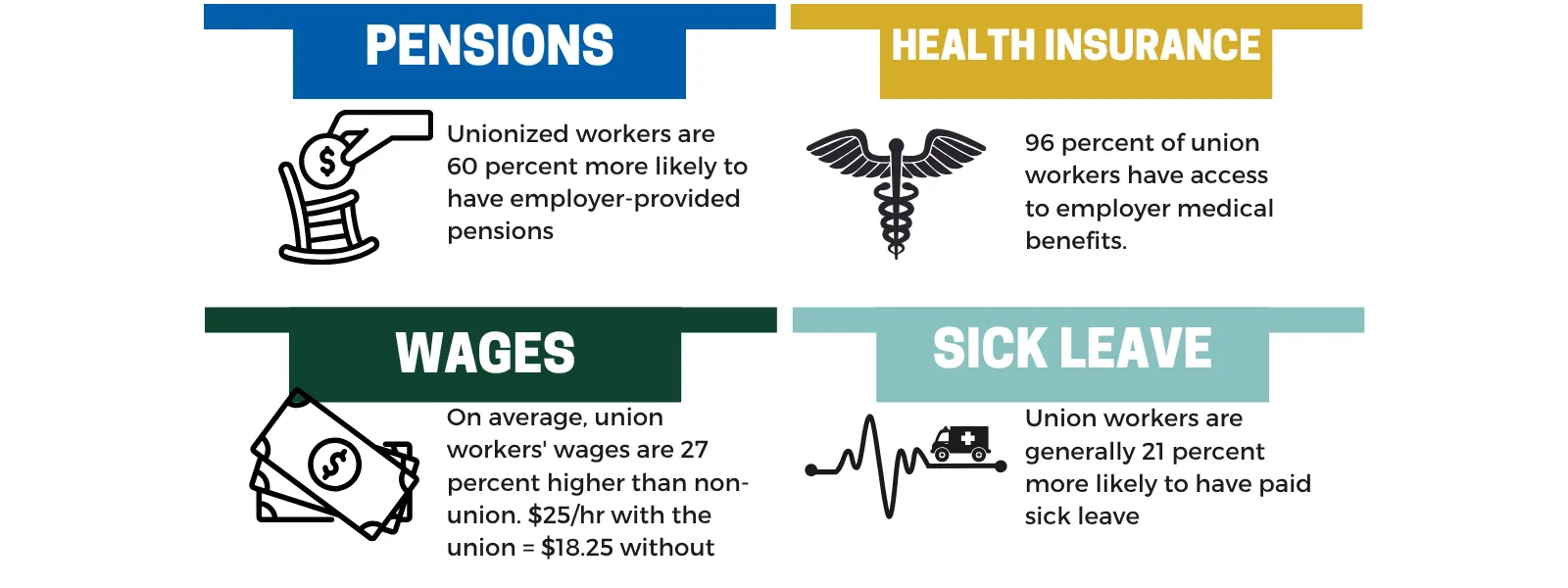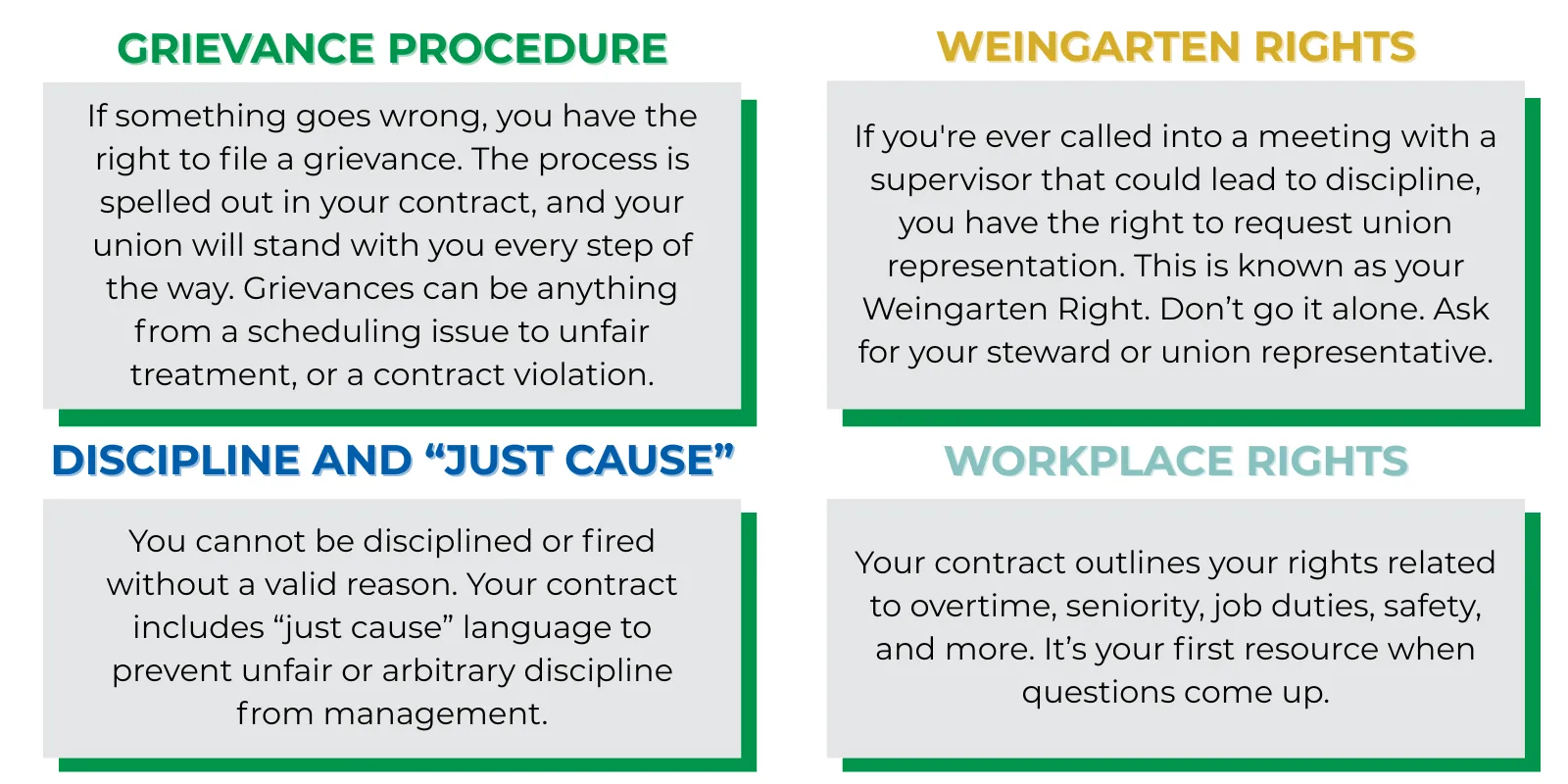Organizing a Union: Frequently Asked Questions
Jump to: Organizing Basics | Legal Rights | Negotiations & Contracts
Organizing Basics
What is a union?
A union is a group of workers who come together to collectively improve their pay, benefits, and working conditions. By standing together, workers gain a stronger voice on the job.
Why organize?
Organizing allows workers to have a say in decisions that affect their jobs, improves working conditions, and ensures fair treatment. Union members typically earn more and receive better benefits than non-union workers.

How do I start organizing my workplace?
Start by talking with trusted coworkers and connecting with a union organizer. Together, you'll form a committee, identify shared workplace concerns, and build support toward winning recognition.
What does it mean to be “union strong”?
Being union strong means sticking together, supporting your coworkers, and participating actively in your union to protect and improve your rights at work.
Legal Rights
Is it legal to talk about forming a union at work?
Yes. Under the National Labor Relations Act, most private-sector workers have the right to discuss unionizing, distribute materials, and organize without employer retaliation. Public sector rights may vary by state.
Can I get fired for supporting a union?
No. It’s illegal for your employer to fire, discipline, or retaliate against you for union activity. If they do, the union can fight back and file charges on your behalf.
What if my employer starts an anti-union campaign?
Employers may try to discourage organizing, but workers have rights. Your union can help you respond and ensure that your rights are protected throughout the process.
Negotiations & Contracts
What is collective bargaining?
Collective bargaining is the process where union members, through elected representatives, negotiate a legally binding contract with their employer over wages, benefits, hours, and other conditions of employment.
What happens after we win recognition?
You’ll elect a bargaining team, survey members for priorities, and begin negotiating a first contract. The process is supported by experienced union staff.
Can we strike if the employer refuses to bargain?
Strikes are a legal and protected tactic under certain conditions. However, not all organizing efforts involve a strike. The union will guide your group through the best strategic steps based on your workplace and goals.
What’s in a typical union contract?
Contracts often include guaranteed wage increases, fair grievance procedures, healthcare and retirement benefits, clear job classifications, and protections against unfair treatment.

